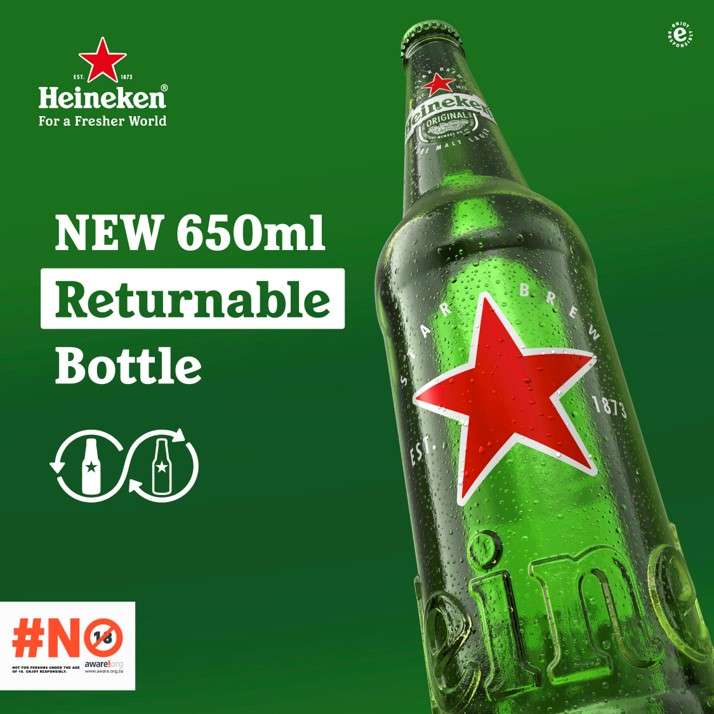Nestlé Expands Plant-Based and Upcycled Coffee Offerings in China
Nestlé, a leading global consumer packaged goods company, has unveiled six new coffee product lines in China, including innovative plant-based beverages and an upcycled coffee product, reinforcing its leadership in the market. This move aligns with the growing demand for sustainable and plant-based ready-to-drink (RTD) options.
Expanding Coffee Offerings
Nestlé’s new lineup features two vegan RTD options—Coconut Americano and Oatmeal Latte—and an upcycled coffee beverage, Guoran Light Coffee. The integration of all sub-brands into the Nescafé lineup is a strategic effort by Nestlé to solidify its position in China’s dynamic coffee sector.
Alfonso Troisi, Senior Vice President for Coffee at Nestlé Greater China, highlighted the increasing coffee consumption among Chinese consumers at the Food & Beverage Innovation Forum (FBIF) last month. “Consumers’ coffee consumption is increasing, from initially one cup a day to possibly two to three cups a day. For us, this is an opportunity,” Troisi said. “As consumers enjoy coffee in more scenarios, we also need to expand more applicable products.”
Aligning with Consumer Preferences
The Coconut Americano contains over 20% coconut water, boasting low sugar and fat content, while the Oatmeal Latte offers 7 grams of dietary fiber, making it a suitable breakfast option. This caters to the health-conscious Chinese consumers who prioritize nutritional benefits in their food choices. According to a 2023 report by Asymmetrics Research, milk alternative brands in China emphasize attributes like ‘no sugar/cholesterol/trans fat,’ ‘good for brains/eyes,’ and ‘high protein/calcium’ on product packaging, reflecting the cleaner label trend.
David J Ettinger, Chief Representative Officer at Keller and Heckman Shanghai, stated, “China is promoting healthier and more nutritious food options in response to the Healthy China policy. Therefore, foods offering health benefits and high nutritional value are going to likely lead the way. Chinese consumers will look to healthier options, like alt-proteins, so it will be up to the alt-protein industry to demonstrate that these novel foods provide another nutritious option for consumers.”
Nestlé’s choice to use coconut and oat aligns with the preferences of Chinese consumers, who favor these flavors in their beverages. Oat milk, in particular, dominates the plant-based alternatives market in China, especially in tier 1 and 2 cities.
Introducing Upcycled Coffee
The upcycled beverage, Guoran Light Coffee, utilizes cascara—the outer husk of coffee cherries, which are typically discarded. This red ‘coffee fruit’ is traditionally used in various cultures to make hot and iced teas and is gaining popularity among specialty coffee companies. Cascara has a slightly sweet and fruity flavor and contains minimal caffeine compared to the seeds inside.
Troisi explained the significance of this product, stating, “In Yunnan, people will make coffee peels into coffee fruit tea for drinking. Therefore, we use it as the main ingredient to make it a drinkable drink every day.” This product represents a decade of development and aligns with the circular economy and regenerative food systems. “The use of the same coffee bean has expanded from the conventional method of making coffee to the use of the entire coffee fruit, including the peel, and its value has been fully explored,” Troisi added.
Capturing the Booming Coffee Market
China’s coffee market is experiencing significant growth, with consumers drinking two to three cups daily. The market reached 617.8 billion yuan ($85.5B) in 2023 and is projected to surpass the trillion-yuan mark ($138B) by next year. This growth has intensified competition among coffee brands such as Luckin, Costa, Starbucks, and Nestlé. While Nestlé dominates the instant coffee market, its expansion into bottled drinks reflects its adaptability and responsiveness to market trends.
“China has a highly dynamic coffee market and growth, and tends to form its own unique and constantly evolving coffee consumption trends,” Troisi told FoodNavigator-Asia. “Based on insights into the local coffee market, we have rearranged our product lines based on consumption scenarios and target groups to ensure better and more targeted product innovation based on consumer needs.”
In response to these trends, Nestlé appointed its first local R&D head for Greater China last year to identify emerging market trends and preferences among younger consumers. The company has also shortened its product launch cycle from 12-18 months to 8-10 months, aiming to reduce it further to six months. Nestlé will soon launch a coffee innovation center in Shanghai to capitalize on these opportunities.
“We pay close attention to the various stages of consumers’ lives and what kind of coffee needs they have in those stages,” Troisi said at FBIF. “We found that the majority of Chinese users were exposed to coffee for the first time during the gaokao [the national college entrance exam]… As they enter the workforce, their needs change, and we adapt our products to those changes.”
Commitment to Sustainability
Nestlé’s commitment to sustainability is reflected in its coffee offerings and corporate goals. The company aims to cut emissions by half and source 50% of its coffee through regenerative agriculture by 2030. “We have clear targets to reduce carbon emissions, so we have taken different measures at all levels,” Troisi stated.
Consumer awareness plays a crucial role in driving sustainability initiatives. “We strive to educate consumers about the sustainability of coffee and share information about sustainable coffee because consumer choices drive progress on sustainable projects,” Troisi added.
Conclusion
Nestlé’s introduction of plant-based and upcycled coffee products in China underscores its commitment to innovation and sustainability. By aligning its offerings with consumer preferences and market trends, Nestlé continues to lead in the competitive coffee sector. This strategic expansion not only meets the growing demand for healthier and more sustainable beverages but also strengthens Nestlé’s position in the rapidly evolving Chinese coffee market.
Related: Nestle Slumps But Coffee Outshines

Source: Green Queen



